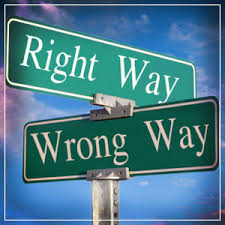 Shalom my friends I 'd like to briefly address an interaction that occurred yesterday during Minyan MOSH between me and my friend, erev rav (on the cusp of Rabbi) Evan Krame. This may be of interest even if you were not one of the 20 sweet souls who were present. I presented a kavannah based upon the rabbinic decision to edit the end of the section of the 13 attributes (Exodus 34:6-7), an edit which makes it more palatable for us to chant these words on the three pilgimage festivals as well as the high holidays. The change leaves out the end of the sentence, where G!d says, "yet He does not remit all punishment, but visits the iniquity of parentd upon children and children's children, upon the third and fourth generation." Admittedly, including these words after chanting "a G!d compassionate and gracious, slow to anger, abounding in kindness and faithfulness, extending kindness to the thousandth generation, forgiving iniquity, transgression, and sin", would be a difficult reality and backdrop to pray under. There is a similar rabbinic edit in the text of Isaiah (45:7) that we davven every morning, from the original text, "I make peace and create evil/bad/woe" to "I make peace and create everything." Another softening of the reality. Evan took me to task saying that "we can't choose the G!d that we want." In theory I agree with him, but in practice, I tend to agree with the rabbis impulse that recognizes that on occasion, we can choose the aspect(s) of G!d that serve(s) to strengthen and support us. Now, whether you agree or disagree with the manner in which Evan's challenge was presented, I would like to direct us to two rabbincal responses that may help in viewing our discussion. First, remember that the Talmud is replete with rabbinic disagreements. The underlying understanding of competing voices is "eylu v'eylu divre Elohim Hayim", "these AND these are the words of the living G-d". In this way, Jewish wisdom never utilizes a zero-sum game, one which says that if I'm right, then you must be wrong. Rather, it seeks to embrace that which seems to be opposite in order to leave room for multiple and oftentimes divergent understandings of the same phenomena. In that way, minority opinions are recognized as potential majority opinions at some time in the future. Secondly, regarding the issue of whether or not we can choose an image of G!d that is easier for each of us as individuals to cling to/yearn for, the Talmud explicitly teaches (Berachot 54a) חיב אדם לברך על הרעה כשם שמברך על הטובה: A person is obligated to bless G!d for the the bad just as he blesses G!d for the good." My sense is that this is an invitation into a deep state of equanimity, that sense of calmness and emotional stability that comes with breathing into, most especially in times of trouble, the truth that "eylu v'eylu", this too (the "bad") is also life. And, as I mentioned yesterday, what seems like a blessing might be a curse, and what seems like a curse, may be a blessing. In the end, it is not whose argument is correc, mine or Evan's, but rather it is incumbant on us to listen for the truth calling out from each side. May all of our arguments be לשם השמים, for the sake of heaven. Blessings for a continued sweet and meaningful Pesach. R' Mark MinyanOnegShabbat.org [email protected] Rabbi Mark Novak 202-362-3270
0 Comments
Your comment will be posted after it is approved.
Leave a Reply. |
Mark Novak is a "free-range" rabbi who lives in Washington DC and works, well, just about everywhere. In 2012 he founded Minyan Oneg Shabbat, home to MOSH (Minyan Oneg Shabbat), MindfulMOSH (Jewish mindfulness gathering), and Archives
June 2017
Categories
All
|
 RSS Feed
RSS Feed
